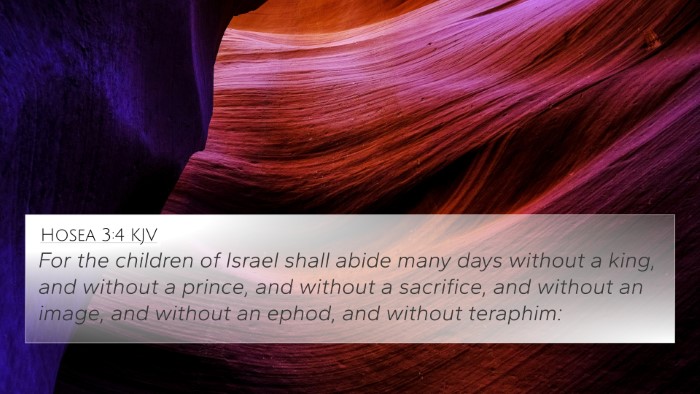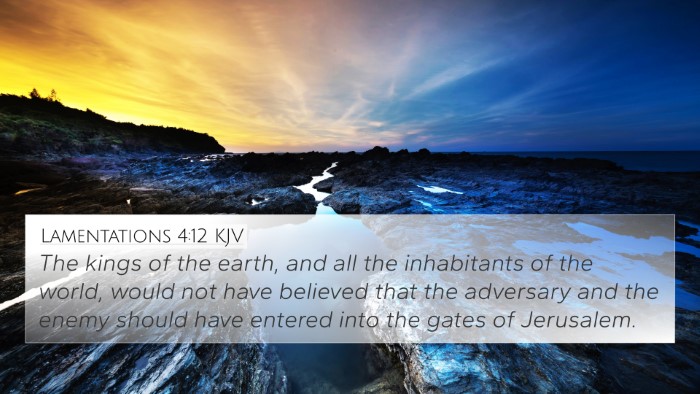Deuteronomy 28:59 Meaning and Interpretation
Verse Reference: Deuteronomy 28:59
This verse is a part of the blessings and curses outlined in the Book of Deuteronomy, a foundational text reflecting the covenant relationship between God and Israel. It reads: "Then the LORD will make your plagues extraordinary, and the plagues of your descendants, great and prolonged plagues, and serious and prolonged sicknesses." The verse serves as a warning regarding the consequences of disobedience to God's commandments.
Summary of Insights from Public Domain Commentaries
Matthew Henry's Commentary
Henry emphasizes the seriousness of divine judgment that comes as a result of apostasy. In this particular verse, the consequences of Israel's disobedience are underscored, suggesting that God's punishments are severe and can affect not just the current generation, but extend to the descendants as well. He interprets this as a call to faithfulness, urging the people to remember the covenant and the mercies of the Lord.
Albert Barnes' Notes on the Bible
Barnes points out that the "extraordinary plagues" mentioned are not merely physical afflictions but symbolize spiritual disintegration and societal consequences. He notes that such punishments illustrate God's zeal for holiness and His desire to protect His people from turning away from His statutes. This verse serves as a reminder of the dire consequences that may follow unfaithfulness.
Adam Clarke's Commentary
Clarke discusses the nature of diseases and afflictions described in the verse, suggesting that they could also denote moral and spiritual decay within the community. He states that these afflictions serve as both a warning and a means to bring the people back to a place of obedience and repentance through suffering.
Cross References and Thematic Connections
Deuteronomy 28:59 connects with several other Bible verses that discuss divine punishment and the consequences of disobedience. Here are some significant cross-references:
- Leviticus 26:16: Highlights the consequences of disobedience similar to those mentioned in Deuteronomy.
- 2 Chronicles 7:13-14: Illustrates God’s warning regarding national obedience and its impact.
- Galatians 6:7: "A man reaps what he sows," emphasizing individual accountability in spiritual matters.
- Ezekiel 18:30: Calls for repentance and turning from iniquity, aligning with the theme of consequences.
- Romans 2:6: Stresses the concept that God will repay each person according to their deeds.
- Hebrews 12:6: Discusses divine discipline as an expression of God's love, which connects to the idea of correction.
- Matthew 23:37-39: Illustrates how God desires to gather His people, even when they turn away, reflecting grace amidst judgment.
Insights into Biblical Themes
The passage from Deuteronomy can be analyzed through the themes of:
- God's Justice: Reflecting the certainty of divine retribution.
- Divine Sovereignty: Illustrating God’s authority over national blessings and curses.
- Human Responsibility: Emphasizing the need for obedience to God’s commandments.
- Generational Impact: The effects of a community’s disobedience can extend through generations.
- Hope in Restoration: For those who repent and return to God, there exists a promise of mercy and restoration.
Understanding Bible Cross-References
Understanding and utilizing cross-references within the scriptures can enhance one’s comprehension of biblical texts. By identifying connections between Bible verses, readers can gain insights into overarching biblical themes and God's character. Here are some tools and tips for effectively engaging in cross-referencing:
- Bible Concordance: A useful tool for locating particular words and themes across different passages.
- Cross-Reference Bible Guides: Guides that help to connect verses based on similar themes or messages.
- Bible Study Methods: Identifying how specific verses illustrate broader theological concepts.
- Reference Resources: Various resources assist in linking scriptures that speak to particular subjects.
Conclusion
Deuteronomy 28:59 serves as a stark reminder of the gravity of turning away from God’s commandments. Through lessons drawn from commentaries and cross-referenced texts, one can engage deeply with the scripture, understanding its implications not only for ancient Israel but for believers today. The interconnectedness of biblical texts emphasizes the consistent nature of God’s dealings with humanity throughout history.















